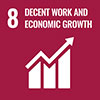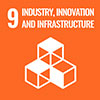Human work and artificial intelligence: the challenge of complementarity
This article explores the impact of artificial intelligence (AI) on the labour market, highlighting its disruptive implications and the opportunities it can generate. AI is an advanced technology capable of automating both routine and non-routine tasks, and it is already transforming activities such as image recognition, complex system management, and language processing. In addition to the effects of polarization and increased wage inequality induced by digital automation, AI can also put highly skilled jobs at risk, as it can replace tasks such as inferential reasoning and information organization. However, while automation will reduce the demand for human work, it will also create new occupations based on emerging skills. The application of AI can also complement human work, improving the quality of results and expanding job skills. This opportunity to develop complementarities will redefine tasks and open up new job opportunities. However, the benefits of AI will not be distributed equally, increasing the risk of exclusion for vulnerable groups. To mitigate these effects, inclusive and active policies that encourage technological adaptation and reduce social inequalities are needed so that AI truly becomes a tool that enhances human expertise.
SDG





 Josep Lladós-Masllorens
Josep Lladós-MasllorensDegree and doctorate in Economic and Business Sciences from the University of Barcelona. Associate professor and member of the research group Digital Business Research (DigiBiz), recognized as a consolidated group by the Agency for Management of University and Research Grants (AGAUR). He has held various posts of academic responsibility at the UOC and has taken part in several research projects relating to the effects of digital technological change on the labour market, as well as publishing articles related to this topic and presenting reports to institutions such as the he Council for Labour, Economy and Social Affairs of Catalonia, CaixaBank and Barcelona Activa, among others.



